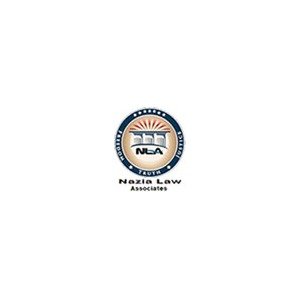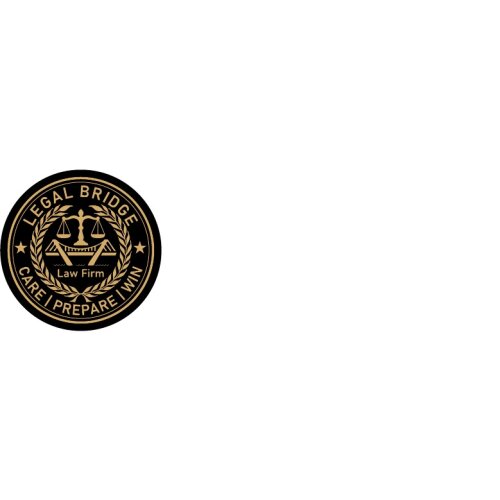Best Antitrust Litigation Lawyers in Pakistan
Share your needs with us, get contacted by law firms.
Free. Takes 2 min.
Or refine your search by selecting a city:
List of the best lawyers in Pakistan
About Antitrust Litigation Law in Pakistan
Antitrust litigation in Pakistan deals with legal disputes surrounding competition laws, which are designed to promote fair market practices and prevent anti-competitive conduct. At the heart of antitrust law is the prevention of monopolistic behavior and cartels that can harm consumers, businesses, and the economy. The primary legal framework for antitrust and competition matters in Pakistan is the Competition Act, 2010. This law empowers authorities to investigate and take action against businesses or individuals who engage in anticompetitive agreements, abuse a dominant market position, or partake in deceptive market practices.
Why You May Need a Lawyer
There are several situations in which individuals, startups, or established businesses might require legal assistance related to antitrust litigation in Pakistan, including:
- Facing an investigation or inquiry by the Competition Commission of Pakistan (CCP).
- Receiving notices or complaints from competitors alleging anticompetitive behavior or cartelization.
- Seeking to challenge unfair business practices by larger competitors or market players.
- Engaging in mergers, acquisitions, or joint ventures that may raise competition law issues.
- Needing compliance guidance to ensure business practices adhere to competition laws and avoid penalties.
- Being affected by price fixing, market allocation, bid rigging, or abuse of market dominance in your industry.
- Responding to show-cause notices, hearings, or penalties imposed by regulatory authorities.
An experienced antitrust lawyer can help navigate complex regulations, represent you before tribunals, and secure your business interests.
Local Laws Overview
Antitrust and competition matters in Pakistan are largely governed by the Competition Act, 2010 and its associated rules. The Competition Commission of Pakistan (CCP) is the chief regulatory authority responsible for enforcement. Some of the key legal provisions include:
- Prohibited Agreements: The Act outlaws agreements between businesses that could restrict competition, such as price fixing, dividing markets, or limiting production.
- Abuse of Dominant Position: Companies holding significant market power cannot act in a manner that is unfair to customers or other businesses. This includes predatory pricing, tying arrangements, or refusal to deal.
- Deceptive Marketing Practices: The law prohibits misleading advertisements and representations that could distort competition.
- Mergers and Acquisitions: Merger control provisions require certain business combinations to be pre-notified to the CCP for clearance, to ensure they do not substantially lessen competition.
- Powers of the CCP: The CCP can conduct investigations, issue orders, impose financial penalties, and direct businesses to cease illegal activity. Parties can appeal CCP decisions to appellate tribunals or courts.
The penalties for violating antitrust laws can include heavy fines, orders to amend business practices, or even annulment of offending agreements.
Frequently Asked Questions
What is antitrust or competition law?
Antitrust, or competition law, is a set of regulations aimed at promoting fair competition and protecting consumers and businesses from unfair market practices such as cartels, monopolies, and abuses of market power.
Who enforces antitrust laws in Pakistan?
The Competition Commission of Pakistan (CCP) is the main regulatory authority that investigates and enforces competition and antitrust laws in Pakistan.
What types of agreements are considered illegal under Pakistani antitrust law?
Any agreement, formal or informal, that restricts competition is generally illegal. This includes price fixing, market sharing, bid rigging, or agreements to limit production or supply.
What does it mean to abuse a dominant market position?
Abuse of dominance involves using a strong market position to engage in unfair practices, such as predatory pricing, exclusive dealing, or refusing to supply essential goods or services without justification.
Can individuals or small businesses file complaints against larger competitors?
Yes, individuals, small businesses, and organizations can file complaints before the CCP if they believe a competitor is engaging in anti-competitive conduct.
What are the penalties for violating antitrust laws in Pakistan?
Penalties can include significant fines, directives to change business practices, public reprimands, and the cancellation of contracts or agreements found to be in violation.
What is the process for CCP investigations?
The CCP can initiate investigations based on its own information, complaints, or referrals. It may call for information, conduct hearings, and issue written orders. Affected parties have rights to be heard and to respond before final outcomes.
Are all mergers and acquisitions subject to approval?
No, only those mergers and acquisitions that cross certain thresholds specified in the Competition Act require pre-notification and approval from the CCP.
Can I appeal CCP decisions?
Yes, parties aggrieved by CCP orders can appeal to an appellate tribunal and, in some cases, further appeal to the higher courts of Pakistan.
How can a lawyer assist me in antitrust matters?
A lawyer can help you understand your rights, prepare responses to investigations, represent you during hearings, provide compliance advice, and litigate cases on your behalf if required.
Additional Resources
To get more information and support regarding antitrust issues in Pakistan, consider the following resources and authorities:
- Competition Commission of Pakistan (CCP) - for guidelines, forms, and recent decisions.
- Ministry of Law and Justice - for official texts of legislation and notifications.
- Pakistan Bar Council or Provincial Bar Associations - for finding specialized lawyers.
- Legal aid clinics at major law schools, which often offer free consultations.
- Relevant chambers of commerce and industry bodies, which sometimes provide guidance on industry-specific compliance.
Next Steps
If you believe you need legal assistance with an antitrust matter in Pakistan, follow these steps:
- Document all facts and evidence related to your case, including communications, agreements, or notices received.
- Consult an experienced antitrust or competition law lawyer. Many lawyers offer initial consultations to assess your issue.
- Review your legal options and decide whether to respond, comply, file a complaint, or pursue litigation.
- Consider ongoing compliance training and legal audits for your business to prevent future issues.
- If necessary, contact the Competition Commission of Pakistan for guidance on processes or to access official forms and documentation.
Dealing with antitrust matters can be complex and time-sensitive. Seeking prompt, professional legal guidance is critical to protecting your interests and ensuring compliance with Pakistani law.
Lawzana helps you find the best lawyers and law firms in Pakistan through a curated and pre-screened list of qualified legal professionals. Our platform offers rankings and detailed profiles of attorneys and law firms, allowing you to compare based on practice areas, including Antitrust Litigation, experience, and client feedback.
Each profile includes a description of the firm's areas of practice, client reviews, team members and partners, year of establishment, spoken languages, office locations, contact information, social media presence, and any published articles or resources. Most firms on our platform speak English and are experienced in both local and international legal matters.
Get a quote from top-rated law firms in Pakistan — quickly, securely, and without unnecessary hassle.
Disclaimer:
The information provided on this page is for general informational purposes only and does not constitute legal advice. While we strive to ensure the accuracy and relevance of the content, legal information may change over time, and interpretations of the law can vary. You should always consult with a qualified legal professional for advice specific to your situation.
We disclaim all liability for actions taken or not taken based on the content of this page. If you believe any information is incorrect or outdated, please contact us, and we will review and update it where appropriate.
Browse antitrust litigation law firms by city in Pakistan
Refine your search by selecting a city.

















